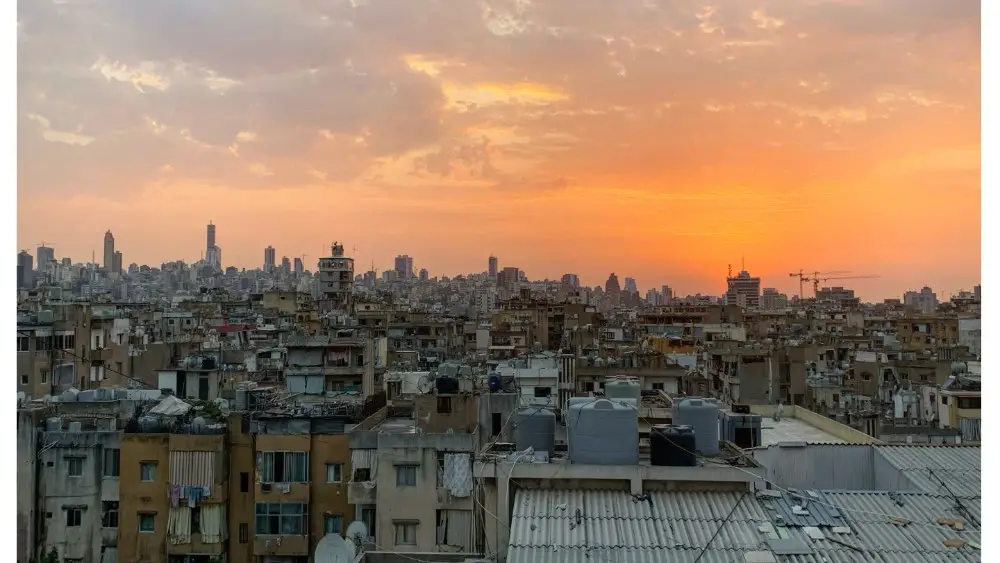Five years after his feature debut All This Victory won the Grand Prix and Audience Award at the Venice Critics Week, Lebanese filmmaker Ahmad Ghossein is preparing to shoot his next film. . The filmmaker’s second feature, The Side Effects of Trusting Life, was selected as part of this year’s Thessaloniki Film Festival’s Agora Crossroads Co-Production Forum and won the Midpoint Consulting Award.
“A new film is a challenge considering what’s happening in Lebanon, but I wrote this film before it all started,” said Gossain. varietyreferring not only to the current war with Israel, but also to the turmoil the country has faced over the past five years. “In 2019, Lebanon completely collapsed economically, politically and socially. It was an example of how capitalism and neoliberalism have failed. If you want to know what’s going wrong, look at Beirut. That image was so strong that I found myself in survival mode, and that became the inspiration for the dark humor. is.”
“The Side Effects of Trusting in Life” is about Lama, a young woman who, after losing her job during the Lebanese economic crisis, begins having hearing problems due to panic attacks. Medically advised to avoid anxiety-provoking situations, she returns to her home village, but soon finds herself back in Beirut and at the center of a spiral of crazy events. The film will be produced by Lebanon’s About Productions and co-produced by Germany’s Twenty20 Vision Film Production and Norway’s DUO Film.
In his director’s statement, Gossain said Rama, like him, “lost his job, became helpless as he witnessed the decline of his city while others fled.” In Beirut, there is no electricity, no water, no money, nothing is working. We are prisoners of that powerlessness. According to Gossain, the film will be “heavily choreographed” and will provide viewers with specific insight into the turmoil of this fictional Beirut.
After making a film about the war between Hezbollah and Israel in All That Victory, Gossain vowed to “never make a film about war again”, but he couldn’t turn his back on the situation in his home country. . “The reality is that two months after I left Venice, the revolution started, then the coronavirus, then the war, so I didn’t have the space to digest what was going on. Filmmaking As writers, we need time and we need space. We need to live to write.”
With the conflict between Lebanon and Israel still raging, the director isn’t entirely sure if he’s “ready” to begin work on his next film. “The situation is still so tough that sometimes it feels like making films is not important. If you ask me now, are films important? No, there is a war going on in my country. What you should do is help people.”
“People are looking to us, not the movies, to talk about it,” Gossein continued, reflecting on the expectations placed on Arab filmmaking, especially in times of conflict. “They want social drama stories and they see us as subjects. They want to see a Middle East that the West can understand.”
“Film is an international language, but ultimately the money comes from Europe, so there’s this pressure,” Gossain continued. “Things are changing in the Arab world, with a lot of co-productions and new funding and grants, but there is still no freedom. Now the European market has little to no understanding, even if the word ‘understand’ Even if it makes me angry, there are producers who want to understand more.”
Regarding bringing his latest project to Thessaloniki, Gossein said there are natural synergies between Greece and Lebanon and that he is happy to work with local partners who understand the ins and outs of working on Arab projects. said. “The Side Effects of Trusting Life” reunites director Gossain with “All This Victory” Greek editor Yanis Chalkiadakis, and the filmmakers are also open to the idea of shooting in Beirut in Greece.
“A Greek producer offered to shoot a movie here if we couldn’t shoot next year,” Gossein said. “But if there was a war in Lebanon, I wouldn’t be filming anything, because I wouldn’t be able to shift my focus and film in Greece as if nothing was happening in my home country. That’s not possible. ”
The director said co-productions remain highly desirable because “there are grants, kickbacks and producers who are interested in co-producing.” A possible solution is to shoot half the film in Lebanon and half in Greece, but although Gossain is open to that possibility, he is saddened that production will have to be moved from his home country. “Space tells you things and speaks to you in other ways. At the end of the day, I have an allegiance to space and to my country.”
